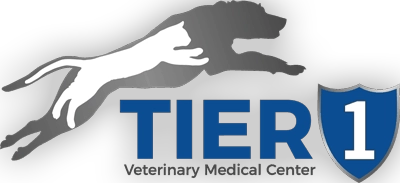TPLO Unilateral with Scope and TPLO Bilateral with Scope
Understanding TPLO Surgery and the Importance of Board-Certified Surgeons
As a pet owner, it's natural to feel concerned when your dog needs surgery, especially for complex procedures like Tibial Plateau Leveling Osteotomy (TPLO). TPLO is a common surgical technique used to treat cranial cruciate ligament (CCL) injuries in dogs, which are similar to ACL injuries in humans. Here's a breakdown of what TPLO involves, its recovery process, and why having a board-certified surgeon can make a significant difference.
What is TPLO Surgery?
TPLO surgery is designed to stabilize the knee joint by altering the angle of the tibial plateau. This is crucial because when a dog tears its CCL, the knee becomes unstable, causing pain and discomfort. By changing the bone's angle, TPLO eliminates the need for the CCL, providing immediate stability and reducing pain.
Types of TPLO Surgeries
- Unilateral TPLO: This involves surgery on one knee. It's typically performed when only one CCL is torn.
- Bilateral TPLO: This involves surgery on both knees, often necessary if both CCLs are torn.
Recovery Process
Recovery from TPLO surgery involves several stages:
- Immediate Post-Surgery: Dogs are usually non-weight bearing for the first 48-72 hours. They may start toe-touching and gradually bear more weight on the leg after this period.
- First Week: Moderate swelling is normal. Ice packs may be recommended to reduce swelling.
- Physical Therapy: Early physiotherapy can help prevent muscle atrophy and improve recovery. This may include passive range of motion exercises, leash walking, and eventually more intensive exercises like swimming or treadmill walking.
Why Choose a Board-Certified Surgeon?
A board-certified veterinary surgeon has specialized training and expertise in performing complex surgeries like TPLO. This advanced training ensures that your dog receives the best possible care, which can lead to better outcomes and fewer complications. However, access to these specialists can be limited in some areas, leading to general practitioners performing these surgeries.
Challenges in Accessing Board-Certified Surgeons
While board-certified surgeons offer superior expertise, many pet owners face challenges in accessing their services. This can be due to geographical limitations or the availability of specialized facilities. In such cases, general practitioners may be asked to perform these surgeries, which can increase the risk of complications.
Tips for Pet Owners
- Consult with Your Veterinarian: Discuss the best options for your dog's specific needs and whether a board-certified surgeon is available.
- Understand the Risks and Benefits: Be informed about the potential risks and benefits of having a general practitioner perform the surgery versus a board-certified surgeon.
- Follow Postoperative Care Instructions: Adhere strictly to the recovery plan provided by your veterinarian to ensure the best possible outcome for your dog.
By understanding the importance of specialized care and being proactive in seeking the best available options, you can help ensure your dog receives the highest quality treatment for their CCL injury.
Benefits of Board-Certified Surgeons for TPLO Surgery
- Expertise and Experience: Board-certified surgeons have undergone extensive training and have hands-on experience in performing complex surgical procedures like TPLO. This specialized training equips them with the skills to address various surgical conditions effectively.
- Advanced Techniques and Technologies: These surgeons stay updated with the latest surgical techniques and technologies, ensuring the best possible outcomes for their patients. They are proficient in using state-of-the-art equipment, which can improve the success rate of the surgery.
- Comprehensive Care: Board-certified surgeons provide comprehensive care, including pre-operative evaluations, surgical planning, post-operative monitoring, and follow-up care. They work closely with other specialists to develop personalized treatment plans tailored to each pet's unique needs.
- Safety and Minimized Risk: By choosing a board-certified surgeon, you minimize the risk of complications during surgery. Their expertise allows them to anticipate and mitigate potential issues, leading to safer procedures and improved outcomes.
- Long-Term Success: The goal of a board-certified surgeon is to achieve the best possible long-term results for your pet, focusing on restoring function, alleviating pain, and promoting healing for a better quality of life.
- Access to Specialized Facilities: Board-certified surgeons often work in referral hospitals equipped with specialized diagnostic and surgical equipment, physical therapy facilities, and critical care services that may not be available in general practice settings.
- Higher Owner Satisfaction: Studies have shown that surgeries performed by board-certified surgeons, like TPLO, often result in higher owner satisfaction due to better outcomes and improved patient recovery.
In summary, while general practitioners can perform TPLO surgeries, the expertise and specialized care provided by a board-certified surgeon can significantly enhance the success and safety of the procedure.
